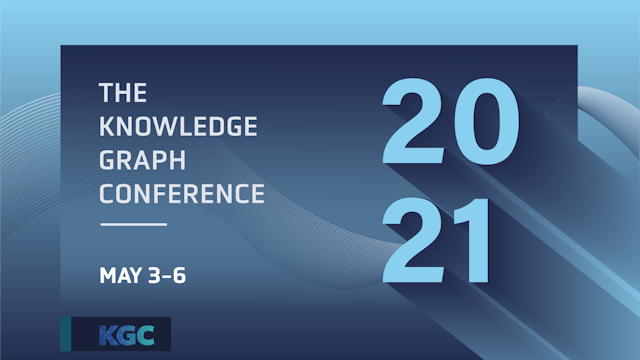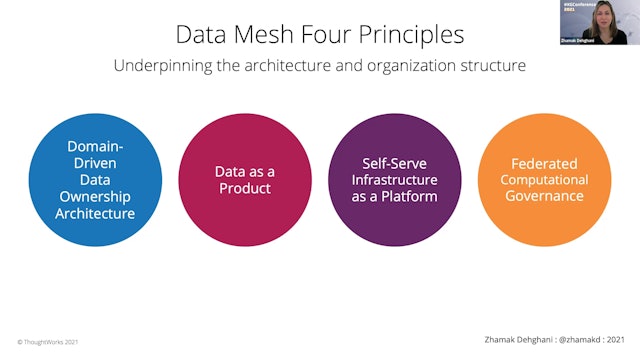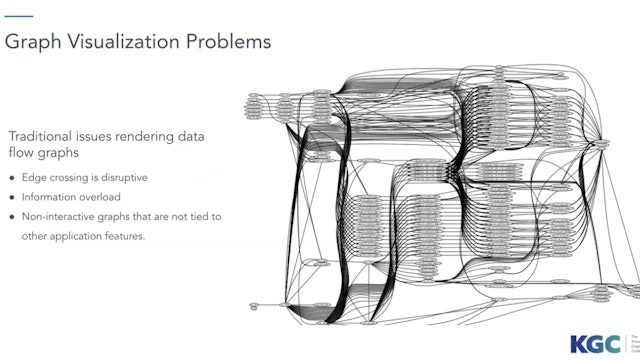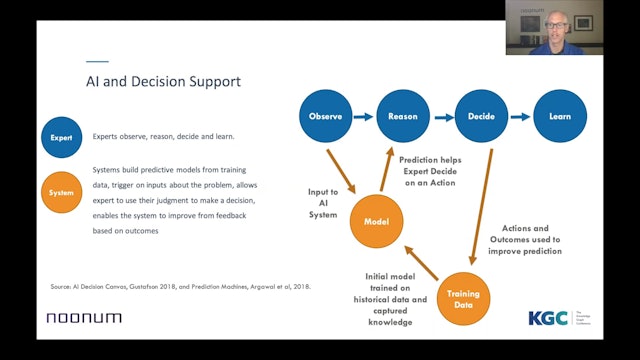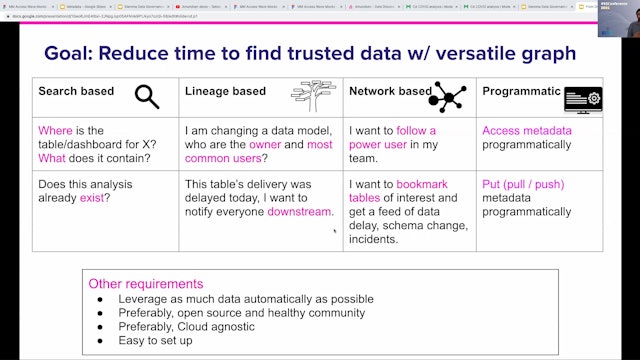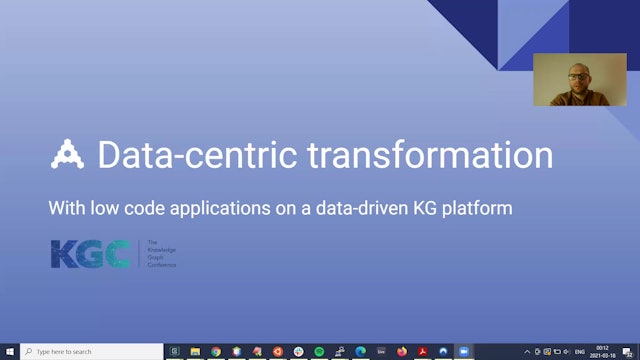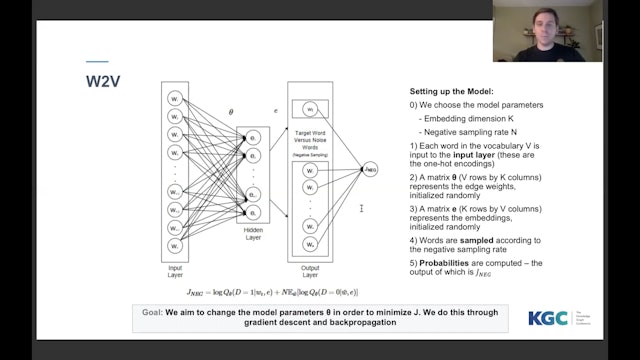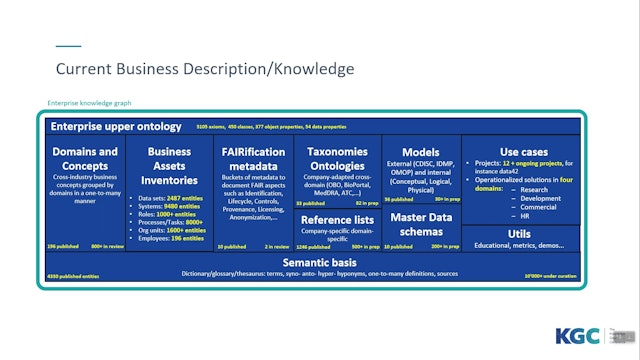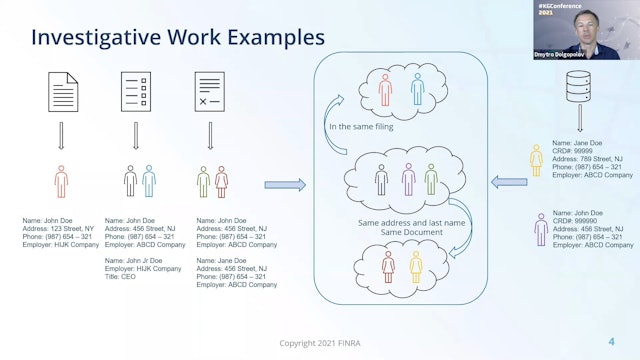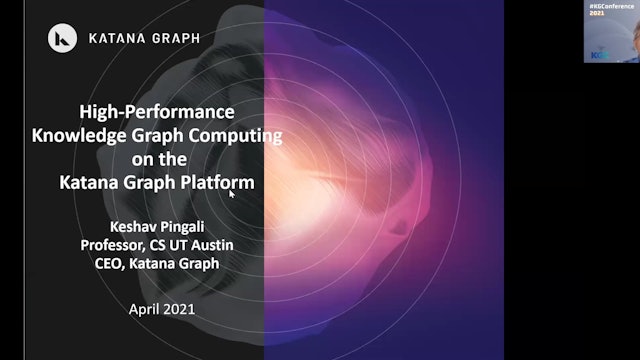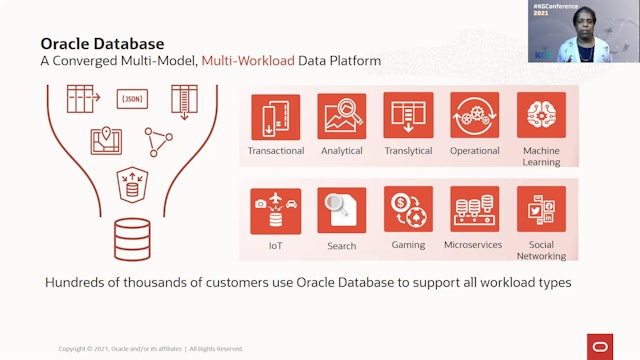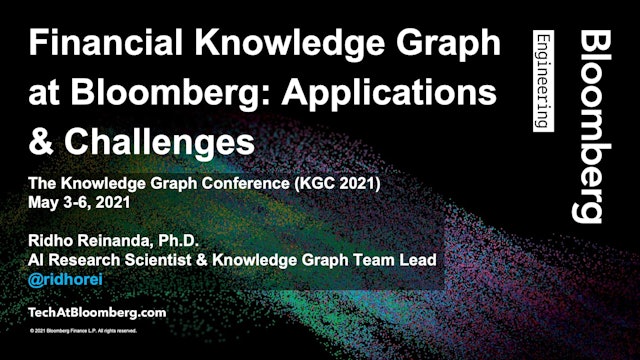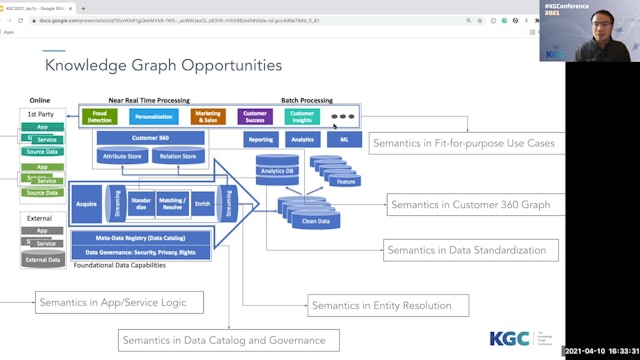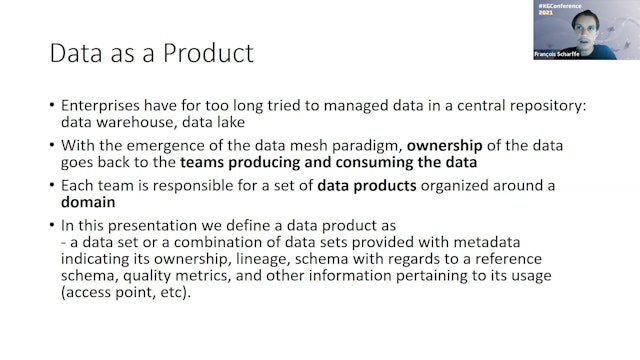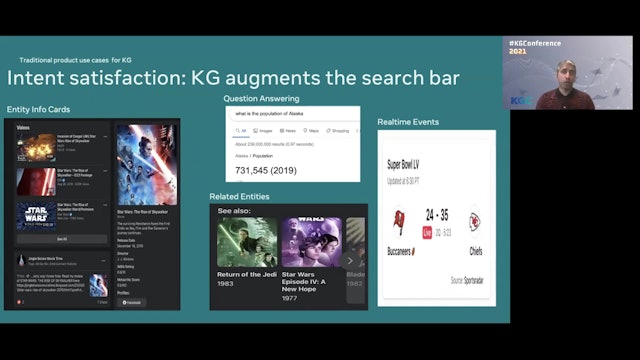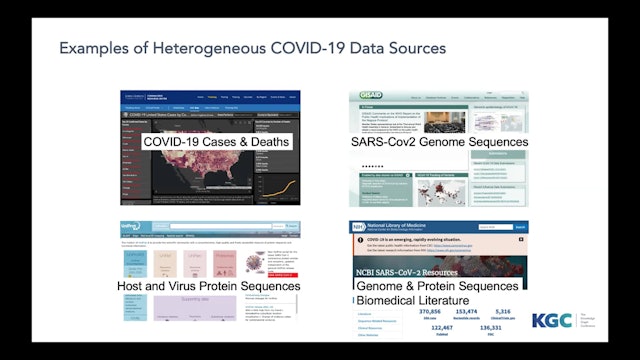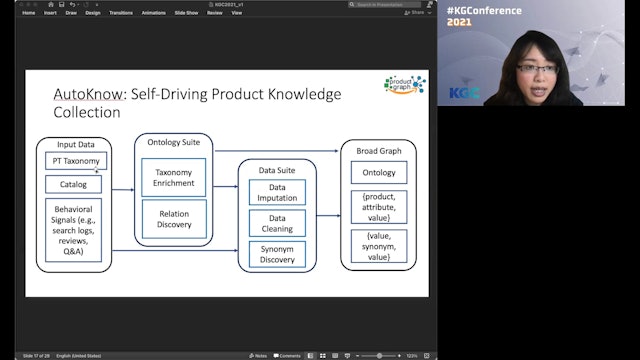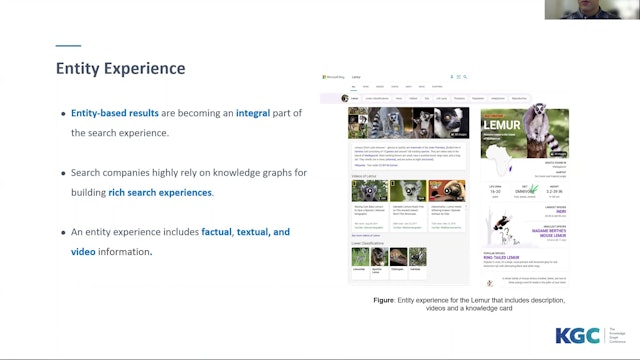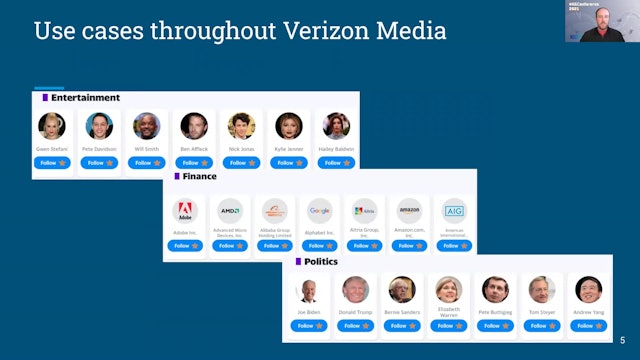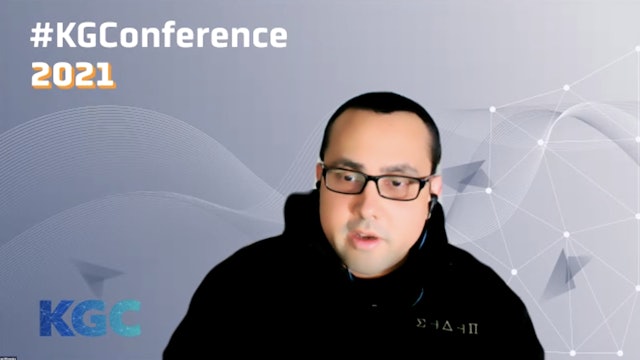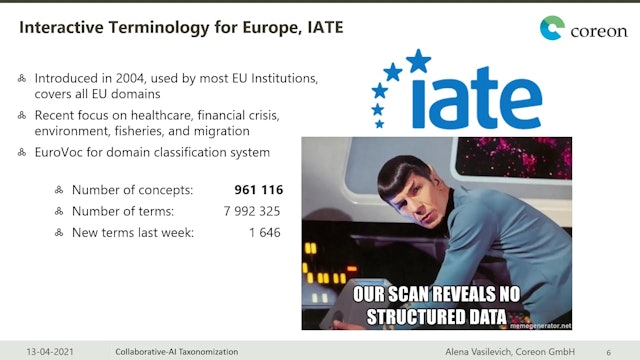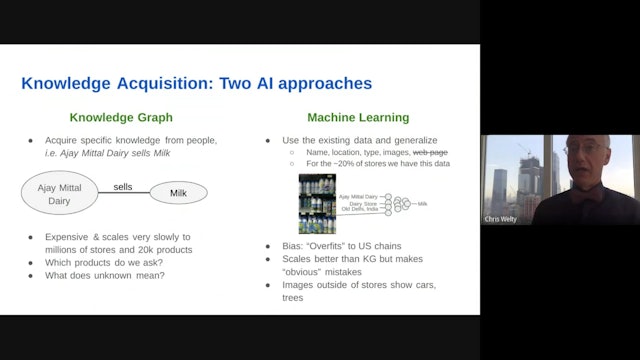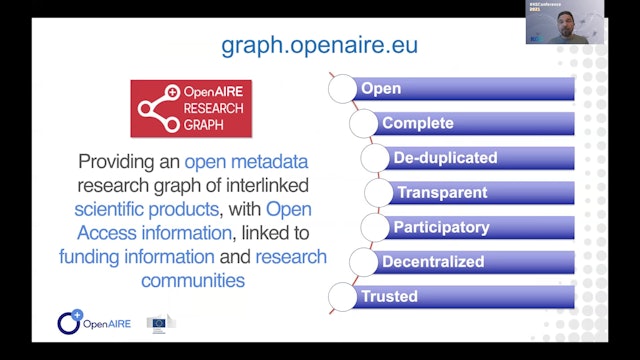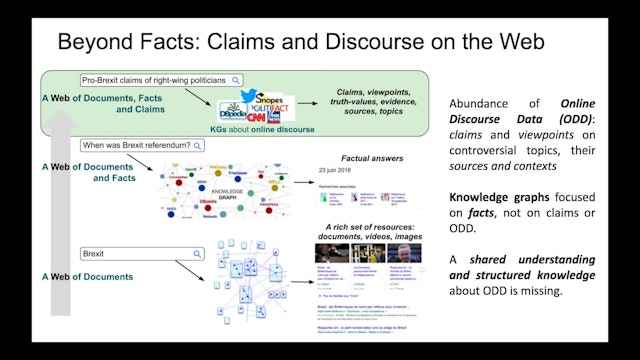-
Zhamak Dehghani | Introduction To Data Mesh
For over half a century organizations have assumed that data is an asset to collect more of, and data must be centralized to be useful. These assumptions have led to centralized and monolithic architectures such as data warehousing and data lake, and neither of which have been able to enable data...
-
Peter Hicks | Visualizing Data Lineage
Extracting metadata from data pipelines and building useful graphs for real production environments.
-
Steven Gustafson | Connecting The Dots With Knowledge & Data
Knowledge graphs provide a way for us to capture and relate information into a representation that can mimic expert knowledge. One type of expert knowledge that has proven to be particularly useful in industry is reasoning by analogy, or using a replacement problem and solution pair to think abo...
-
Mark Grover | From Discovering To Trusting Data
Over a third of analyst time is spent in understanding what data exists, can it be trusted and how to use it. Countless Data Engineering time is spent in answering the same questions about data - what does that column mean, how does it get populated, how often does it update and if there’s any in...
-
Martynas Jusevicius | Data-centric Transformation
One of the key pieces of global infrastructure today is the web yet it continues to be developed using legacy technologies dating back to the 1960s. A result of using outdated technology in turn has created several major problems. First, relational data models are a primary contributor to the dat...
-
Alex Kalinowski | Structured To Unstructured & Back: Integrated KG and NLP
Identification of entities and the relations between them is a difficult task for traditional pattern-based matching or machine learning approaches; these techniques rapidly overfit training datasets and struggle to transfer to other contexts or domains. Utilizing outside knowledge, such as facts...
-
Cedric Berger | Data Governance 4.0 Applied To A Unified Clinical Data Model
Driven by legacy paper-based approaches, the design, conduction and analysis of clinical studies requires the creation and transformation of many data in many different formats. This hinders the process and necessitates significant resources. Having metadata-driven transformation is not new, howe...
-
Chen Zhang & Dmytro Dolgopolov | Entity Disambiguation With Knowledge Graph
During the presentation, we will share our experience in building a knowledge graph leveraging Spark, NLP, and Machine Learning. We will start with explaining the business problems and challenges. Then walk through our data pipeline, including text analytics processes, name similarity solutions, ...
-
Keshav Pingali | High Performance Knowledge Graph Computing On Katana Graph
Knowledge Graphs now power many applications across diverse industries such as FinTech, Pharma and Manufacturing. Data volumes are growing at a staggering rate, and graphs with hundreds of billions edges are not uncommon. Computations on such data sets include querying, analytics, pattern mining,...
-
Melliyal Annamalai | Developing Enterprise Applications With Oracle Graph
Application developers often need to work with a variety of data types, data models, and workloads within an application. Oracle Database is a multi-model, multi-workload data platform with model-specific tools and technologies, enabling developers to build integrated applications while taking a...
-
Ridho Reinanda | Financial Knowledge Graph At Bloomberg
The Bloomberg Knowledge Graph is a graph-centric representation of entities and relationships in the financial world which connects cross-domain data from various sources within Bloomberg. Recent developments in machine learning, knowledge graphs, and language technology have enabled intelligent ...
-
Jay Yu | Weave Knowledge Graph Tech In Enterprise Data Architecture
Intuit is embarking on a multi-year journey to transform from a financial product-centric company into an "AI-driven Expert Platform" company. We have aligned our enterprise data architecture and strategy to the company growth strategy, with a clean end-to-end enterprise architecture that embrac...
-
Justin Zhen & Francois Scharffe | Building Data Products Using No-code KGs
Description: The switch to decentralization in data management is finally happening as organizations struggle with a disconnect between data teams and domain knowledge. Once a new organizational structure around data domains is in place, the need for platforms for managing data products appears. ...
-
Shekhar Iyer | Multi-Modal Retrieval Over Knowledge Graphs
Recent Advances in representation learning and application of Deep Neural Nets towards structured data and Knowledge Graphs (KG) is enabling opportunities for multi-modal representation of entities and relations. We can now aspire to build access to data encoded in knowledge Graphs through one of...
-
Peter Rose | Integrating Heterogeneous Data Sources Into A COVID-19 Graph
The COVID-19 pandemic has mobilized researchers worldwide to investigate many aspects of the outbreak, ranging from case statistics, patient demographics, transportation modeling, epidemiological studies, to viral genome sequencing. Relevant data are produced and publically shared at an unprecede...
-
Xian Li | AutoKnow: Self-Driving Knowledge Collection For Products
Can one build a knowledge graph (KG) for all products in the world? Knowledge graphs have firmly established themselves as valuable sources of information for search and question answering, and it is natural to wonder if a KG can contain information about products
offered at online retail sites.... -
Amgad Madkour | Entity Life Cycle In Search-Centric Knowledge Graphs
Entity-based results are becoming an integral part of the search experience. Search-centric companies highly rely on knowledge graphs in providing the necessary information for building rich search experiences. An entity can originate from a structured, semi-structured, or unstructured data sourc...
-
Mike Welch | Serving A Web Scale Knowledge Graph
The Yahoo Knowledge Graph powers entity data for user experiences across multiple products at Verizon Media, from search to media to ads. Nodes in the knowledge graph correspond to real world entities: people, places, movies, sports teams, and so on. The edges represent semantic relationships bet...
-
Ryan Wisnesky | How To Optimally Merge Knowledge Graphs With Category Theory
In this talk we describe a new technique for merging knowledge graphs: translating the knowledge graph schemas into categories and the knowledge graph data into functors, then applying the "co-limit/pushout" construction from a branch of mathematics called category theory to merge these categorie...
-
Alena Vasilevich | Benefits Of Collaborative AI vs. Manual Creation
In the realm of data-driven businesses, structured data, being highly organized and easily understood by machines, is a valuable resource. IATE, with almost one million concepts storing multilingual terms and metadata, holds a large part of the textual knowledge of the EU. However, it can only be...
-
Chris Welty | Shopping Sense: Bringing Common Sense To Worldwide Shopping
Knowledge Graphs (KGs) continue to penetrate the industrial world after Google's famous "things not strings" was used to explain their acquisition of FreeBase ten years ago. While many KGs exist, they are by and large little more than "entity catalogs", missing entirely the links between those e...
-
Paolo Manghi | The OpenAIRE Research Graph: Science As A Public Good
The presentation will introduce the motivations, architecture, and operation of the OpenAIRE Research Graph (http://graph.openaire.eu), one of the largest (if not the largest) public, open access, collections of metadata and semantic links (~1Bi) between research-related entities: articles (124M+...
-
Konstantin Todorov | Browsing The Web Of Claims
How do falsehoods spread on the web? This and other questions related to the propagation of fake news and biased discourse in the public area have been drawing increasing interest in different communities from social sciences to artificial intelligence. Online discourse, i.e. claims and opinions ...
-
Chaitan Baru | Open Knowledge Network
The concept of an Open Knowledge Network (OKN) is one of the components of the National Science Foundation’s Harnessing the Data Revolution (HDR) Big Idea, with the objective of providing semantic information infrastructure. By encoding information and knowledge about real-world entities and thei...

